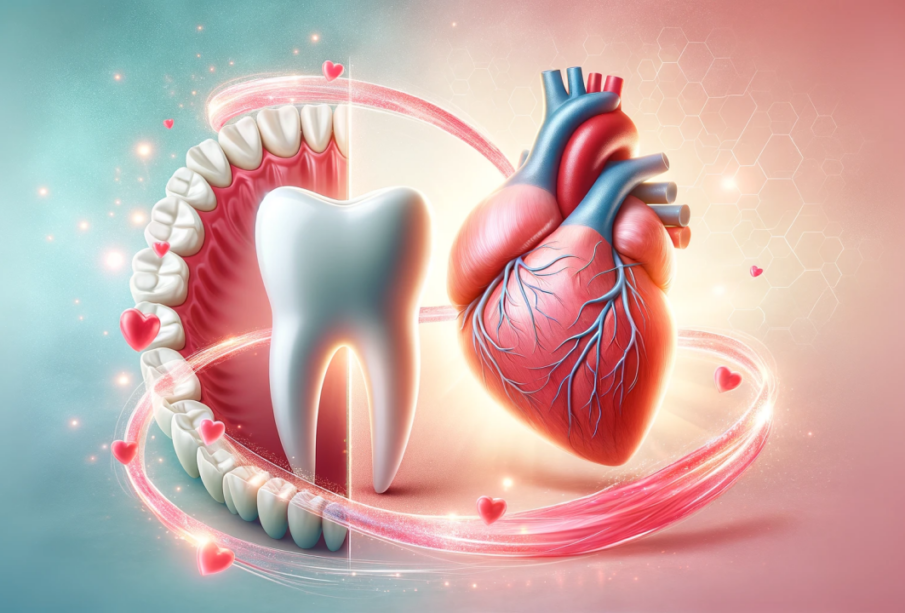The Link Between Gum Health and Heart Health

You could picture your mouth and heart as two different places inside your body. But there is an interesting link between how healthy your gums are and how healthy your heart is. Gum disease is an illness that affects the tissues around your teeth.
It can have a big effect on your heart health. Make an appointment to see a family dentist in Pleasanton, CA, to learn more about how to keep your teeth and gums healthy.
Understand gum disease.
Gingivitis is the first sign of gum disease. It is a weak infection that makes the gums swell and turn red. You can get periodontitis, which destroys the muscles and bones that hold your teeth in place if you do not treat gingivitis.
The inflammatory connection.
Inflammation is one of the main ways that gum disease hurts your heart. Your body fights the infection all the time when you have gum disease, which causes chronic inflammation. This long-lasting inflammation can move through your system and possibly reach your heart, where it can make heart disease more likely.
There is strong evidence that gum disease and a higher chance of heart disease are linked. Studies have shown that people with mild to serious gum disease may have a heart attack up to 20% more often than people whose lips are healthy.
Bacteria is a silent threat.
Another key reason is the presence of germs. Gum disease houses harmful bacteria that can enter your system. These germs can move to your heart and possibly contribute to the development of diseases such as endocarditis, which affects the heart valves.
The role of C-reactive protein (CRP).
The level of C-reactive protein (CRP) in the blood is a key link between gum disease and heart disease. When there is inflammation, the liver makes a protein called CRP. High amounts of CRP are linked to both gum disease and a higher chance of heart disease.
How gum disease increases the risk of heart disease.
Atherosclerosis.
Plaque can build up in your arteries if you have gum disease and chronic inflammation. Plaque is made up of fat, cholesterol, and other particles that stick together. This buildup can make the arteries shrink, which makes it harder for blood to get to your heart.
This is called atherosclerosis. This can make you more likely to have a heart attack or stroke because it makes it harder for blood to flow.
Endocarditis.
Bacteria from gum diseases can get into your heart valves and damage them. This illness can hurt the heart valves, making them less able to do their job. 
Take action to protect your heart.
The good news is that you can take steps to protect both your gums and your heart.
- Maintain excellent oral hygiene: Brush your teeth twice daily with fluoride toothpaste and floss daily to clear plaque and germs from between your teeth.
- Schedule regular tooth checkups: Visit your dentist for skilled cleanings and exams to identify and treat gum disease early on.
- Adopt a healthy lifestyle: Eat a healthy diet, exercise daily, and handle stress to support general circulatory health.
Putting oral health first can cut your chance of both gum disease and heart disease by a large amount. Do not forget that a healthy mouth helps keep your heart healthy.
The connection between oral and heart health is complex.
Researchers are still trying to figure out the exact processes that make this link possible. But it is clear that gum disease’s ongoing inflammation and bacterial infection play a big part in making heart problems more likely.
Taking care of your teeth and gums is important for your general health. You can greatly lower your chance of gum disease and its possible effects on your heart by strictly following good oral health habits like brushing, flossing, and going to the dentist for regular cleanings.













